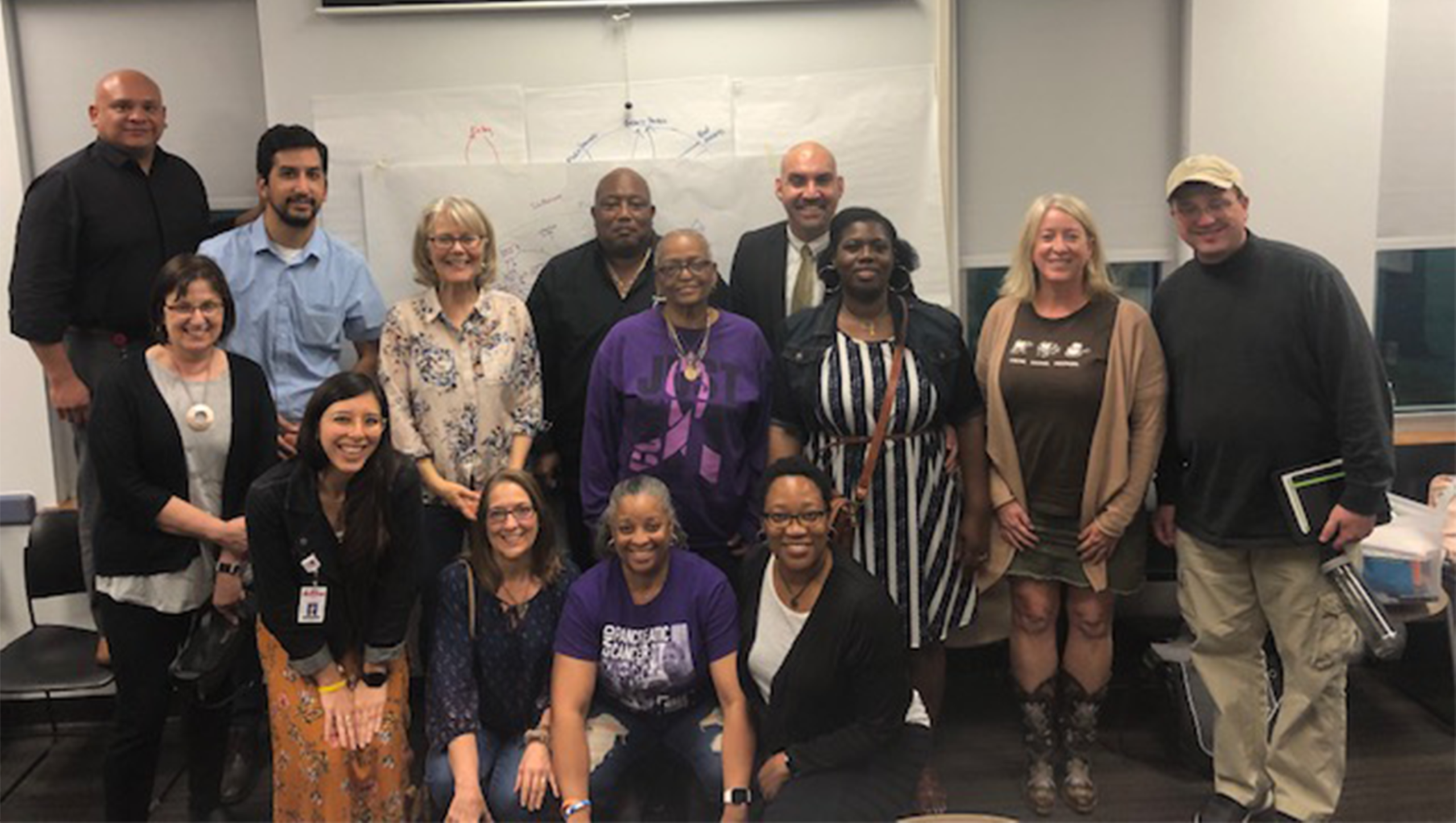
To recognize World Cancer Day, members the Livestrong Cancer Institutes’ Community Cancer Advisory Board dedicated time in their January meeting to reflect on what this year’s “close the care gap” theme means to them. The advisory board — made up of cancer patients and survivors, as well as loved ones of those affected by cancer — work with Dell Med’s Livestrong Cancer Institutes to identify gaps in support for cancer patients and rethink how cancer care is provided.
World Cancer Day, an initiative of the Union for International Cancer Control, frames the “close the care gap” theme by acknowledging that although there are major advancements in cancer prevention, diagnoses and treatments, disparities in access to care exist and that many who seek cancer care face barriers at every turn. For those on the advisory board, who have each been impacted by cancer in different ways, this position rings true.
“This day is important,” says Susie Angel, a cancer survivor and disability rights activist. “Cancer is one thing that affects everybody, no matter who you are, where you are.” Based on her personal and professional experiences, Angel works to ensure that those with disabilities have optimal access to care. Individuals with disabilities can experience disparities and face unique barriers to accessing care throughout the cancer continuum, including screening and diagnosis, treatment options and survivorship care. Noted in the Official Journal of the National Comprehensive Cancer Network, “an increasing body of evidence indicates lower participation in cancer screening for people with disabilities, due to a number of physical, institutional, financial, and attitudinal barriers.”
Addressing Barriers to Cancer Care
“Advance notification of a diagnosis is so important for all types of cancer,” says Iris Knight, a caregiver to family members with cancer. According to the American Cancer Society, adolescents and young adults, those treated for cancer between the ages of 15 and about 40, are often diagnosed at a later stage of cancer compared to those who are younger or older. Adolescents and young adults are less likely to be screened for cancer, less likely to have health insurance and less likely to have established care with a primary care provider.
Just as cancer disparities exist across age, they exist based on race and ethnicity as well. “For me, it’s super important that challenges of minority groups are highlighted,” says Rebecca Muñoz, MPH. Muñoz, a young adult cancer survivor and founder of Chemo Cold Cappers support group, is an advocate for cancer survivors, particularly those who face barriers in accessing cancer care.
According to the American Association for Cancer Research, African American women have double the incidence rate of triple-negative breast cancer compared to white American women, and Hispanic women are 69% more likely to be diagnosed with breast cancer at an advanced stage than white women. “A lot of individuals are affected and don’t even know about it,” says Gene Knight, a cancer survivor. “We need to start thinking about cancer as a global thing.”
World Cancer Day is about offering broader support to the entire cancer community and not just to those who are in treatment. Cancer impacts families, friends and loved ones who also experience changes in their own social, emotional and practical needs. “It’s important to highlight the impact beyond the patient,” says Ryan Becerra, a young adult cancer survivor.
This blog post was authored by the Livestrong Cancer Institutes’ Community Cancer Advisory Board. The Cancer Institutes are grateful to the board members for sharing their cancer experiences and for their commitment to closing the gap on cancer disparities.
If you have been impacted by cancer and have an interest in participating on a Livestrong Cancer Institutes advisory board, email the team at CaLM@austin.utexas.edu.